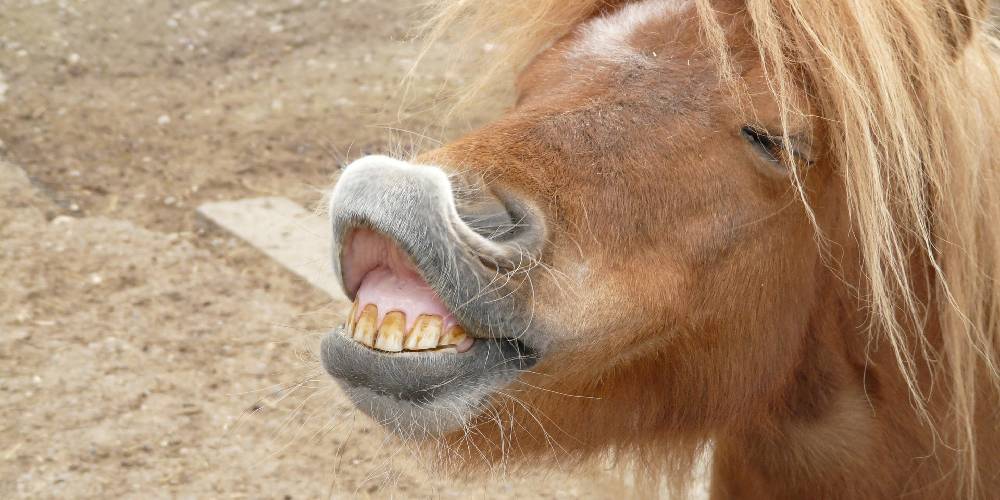Why do horses lift up their lip when they smell something interesting or funny? What is this called? This funny sight is actually a special thing horses do for a number of specific reasons. This behavior is known as the Flehmen response and it is seen done in horses of all ages, sizes, and genders. You might notice horses doing this after tasting something new or smelling something different. This is because they are trying to figure out what it is that they just discovered so by doing this action, horses are actually trying to trap the scent or taste so they can mentally process it longer.
What Is The Flehmen Response?
The Flehmen Response is something that you might have seen a horse do before. This response is seen when a horse raises its head in the air and lifts its upper lip high so its nose crinkles and its nostrils are partially blocked. The whole point of this response is to trap a scent in their nose to try to remember the scent, to try to identify the scent, or to gather ‘chemical messages.’
Why Do Horses Do It?
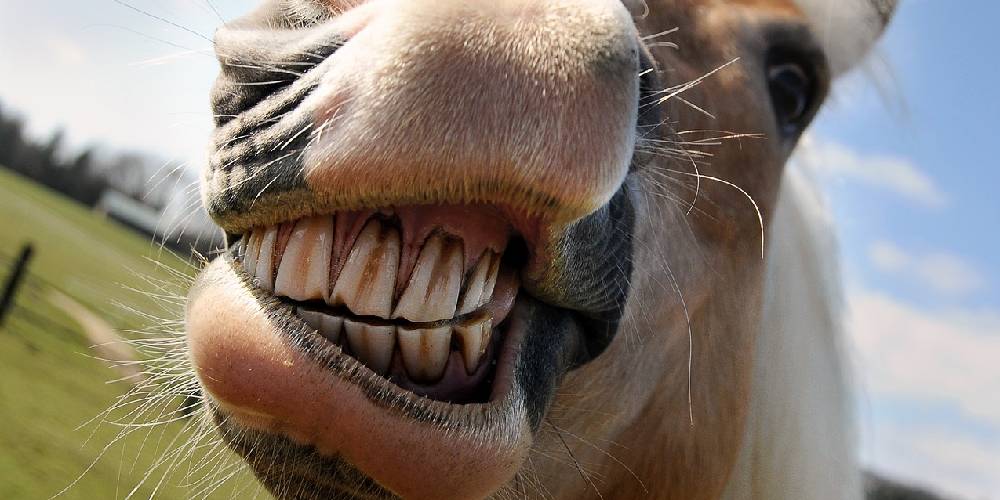
Why do horses do the Flehmen response? Like I said in the portion above, horses do this reponse to trap a scent into their nose to analyze it and pick up on any messages that the scent could be giving them.
An example of a time that a horse might do this is a stallion who is near a mare in heat. He might trap her scent in his nose, read the chemical message telling him she wants to mate before he then proceeds to mate with her.
Another example of a time a horse might do this is if you were to feed them a treat or fruit that they have never had before. I have seen this happen with my own horses. I fed my horse Bronze a piece of watermelon, a fruit he never had before, and after taking a bite he lifted his lip in the Flehmen response to try to figure out what on earth he was eating. I have seen videos of horses doing this after eating different fruits such as grapes, dragon fruit, and bananas as well.
At What Age Do Horses Start Doing This Response?
Horses start doing the Flehmen response at a very young age. A foal that was just born at a barn I ride at actually started doing this response in his first days of life. The reason for him doing this response was because he had started to eat and try different things and he was reacting to one of the things he tasted.
How Often Do Horses Do It?
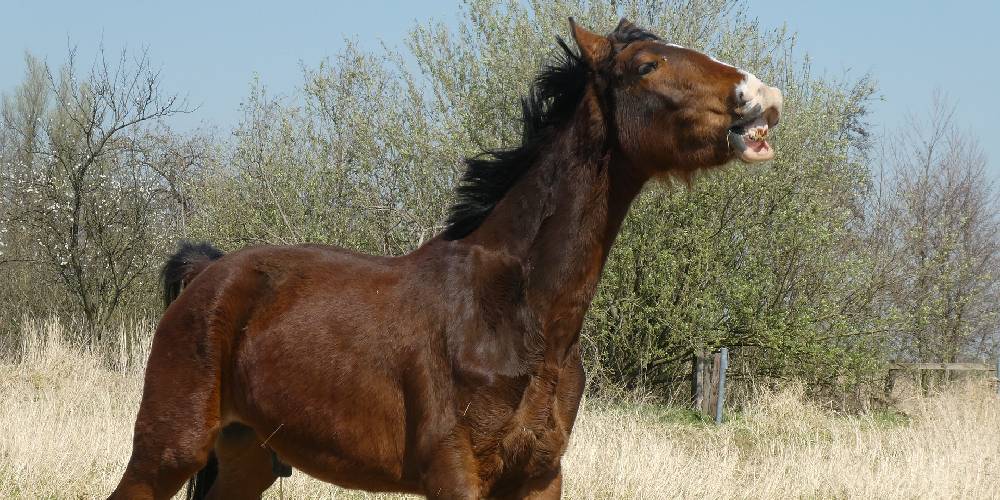
This isn’t a set amount of times a horse will do this response in its lifetime. Some horses will perform this response all the time, mainly in the case of a breeding stallion, while other horses will do this rarely or almost not at all.
Is There A Specific Type, Age, Or Gender Of Horse That Will Perform This More Frequently?
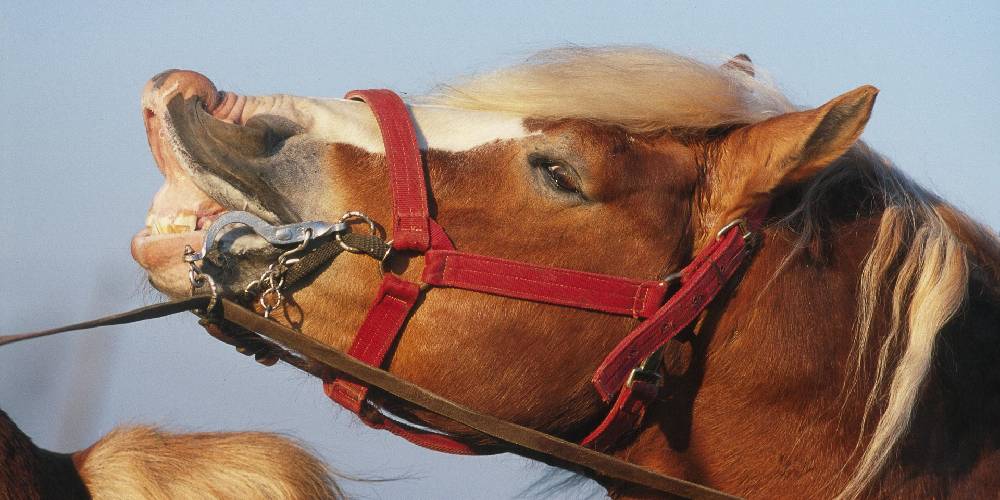
Yes there actually is, on average, a ‘usual’ kind of horse that will perform the Flehmen response. The specifics of these horses include:
Type
Warmblooded horses and Hotblooded horses are known to be more common to perform this response than Coldblooded draft horses are. This is because Warmblooded and Hotblooded horses are fierier in temperament and are more responsive overall. Because of this, Warmblooded and Hotblooded breeds show more curiosity and are more flighty thus increasing the performance of this response.
If you want to learn what Hotblooded horses are, click here!
If you want to learn what Warmblooded horses are, click here!
If you want to learn what Coldblooded horses are, click here!
Age
Young horses are much more likely to do the Flehmen response than older horses. The reason for this is that older horses have experienced many more tastes and scents making them less likely to do the Flehmen response than a younger horse who has never tasted or smelled many things before.
Gender
Stallions are the horses that are the most likely to do the Flehmen response frequently. This goes especially for breeding stallions as those are the male stud horses that are breeding with mares all the time. A stallion will usually do the Flehmen response when approaching a mare, especially one that is in heat. He does this response to read any chemical messages he might pick up from the mare’s scent. Stallions can tell if a mare is in heat so by reading this chemical message, he can then advance on the mare with a lower chance of her rejecting his advances.
What Are The Main Two Things That Cause Horses To Do This Response?
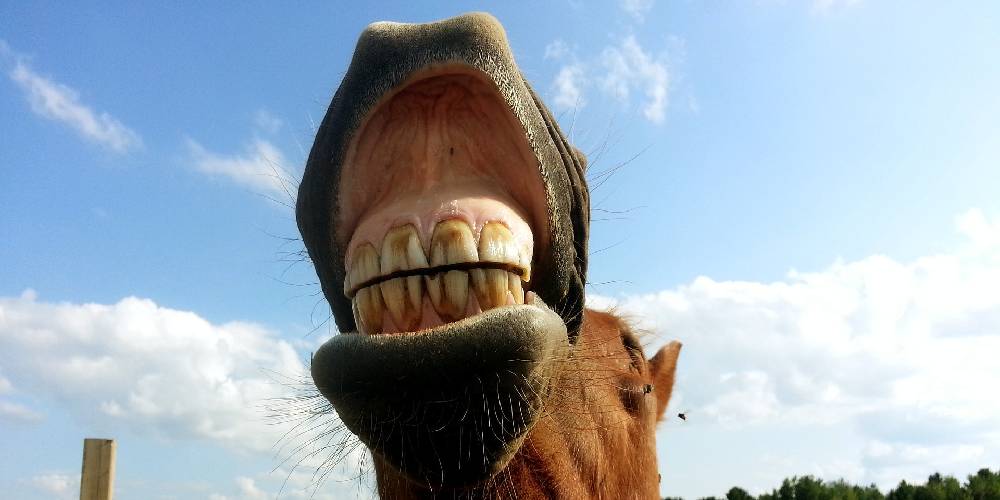
The two things that cause horses to do the Flehmen Response are if they:
Smell Something New, Smelly, Or Interesting
Horses will often respond to certain scents with this Flehmen Response. One of the things that causes them to do this is through smelling something knew. Horses might smell a new animal, a new food, or a new pile of a different animal’s droppings and respond by doing the Flehmen response to kind of examine this new scent.
Sometimes, if a horse’s owner shows up to the barn wearing a new perfume that is really strong, their horse might take a big whiff and then respond with the Flehmen response to try to figure out what it is that they are smelling. I have seen a video of this very thing happening where a girl’s horse smelled her owner and seemed to react with “What on earth are you wearing? This is a new perfume.”
Taste Something New, Gross, Or Different
When feeding a horse new foods, fruits, grains, supplements, and vegetables, horses can respond with a number of different reactions.
When feeding a horse a new treat, like grapes for example, they can respond to this new weird taste with this response. I have seen this with one of my friend’s OTTBs. Her horse didn’t know quite what to think of his grapes and he did the Flehmen response after trying this food for the first time.
If a horse eats something and doesn’t really like it, they can respond with this response. I have given one of my Arabian’s wormer before and because he didn’t like it, he bobbed his head before lifting his lip.

